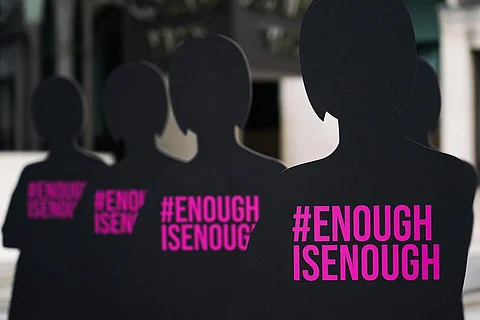

In a recent and intriguing occurrence, the Supreme Court directed a petitioner NGO to refer the issue of sarpanch patism in India’s lowest level of governance, namely the Panchayati system, to the Ministry of Panchayati Raj. The court emphasised that no judicial institution can resolve this problem definitively.
The instances of sarpanch patis are not few and spread across the country. There is this Madhya Pradesh man with ‘power of attorney’ from his elected sarpanch wife in lieu of him paying her election expenses. Or the Odisha woman authorising her husband to carry out Panchayat duties because of her alleged domestic responsibilities. There is ample evidence of campaign posters qualifying women candidates solely regarding their marital relationship---as the wife of ‘so and so’.
Panchayats, the local self-governing bodies in rural India, are crucial democratic institutions. However, the presence of patriarchal influences within these systems hinders genuine progress.
The concept of sarpanch patism entails a scenario in which men, predominantly husbands, exercise control over the panchayats by using their elected wives as figureheads. This dynamic results in women possessing nominal power on paper, while the true authority and capacity to make decisions lie with their husbands. These unelected men wielding decision-making power on behalf of their elected wives are a profound setback for Indian democracy and the governance structure. Such a circumstance directly undermines the essence of the 73rd and 74th constitutional amendments of 1992 and makes a flagrant mockery of the principles and objectives they set forth.
The law mandates reserving a third of all seats for women in the panchayats, to be allotted by rotation to different constituencies in a Panchayat. In 2006, Bihar became the first state to reserve 50% of the total seats for women, followed by 20 more states, including Rajasthan, Madhya Pradesh, Haryana and Chhatisgarh.
The primary advantage of reserving seats for women is that it promotes gender equality in decision-making processes. Ensuring that women have representation at the grassroots level helps address the historical marginalisation and their exclusion from political participation. It enables women to voice their concerns, contribute to policy decisions, and shape the development agenda of their communities, as reported by the Ministry of Statistics and programme implementation in their report on ‘participation in decision-making’.
Moreover, women bring different perspectives, experiences, and priorities to the decision-making process, leading to a broader range of ideas and policies that better reflect the entire community's needs. A 2003 study by UNESCO states that with women as decision-makers, targeted development can be achieved as they often have unique insights into the specific needs and challenges women and children face in their communities.
Research by the India policy forum suggests that women’s participation as decision-makers increases responsiveness to female policy concerns. Women often prioritise social welfare, health, education, and sanitation issues, which are crucial for community development. Most importantly, this produces the role model effect. When women occupy leadership positions in panchayats, they serve as role models for other women and girls, inspiring them to participate in public life. Increased representation can encourage women to take leadership roles in various spheres, leading to broader social and political empowerment.
Though extremely beneficial, the implementation of the law is facing problems as, in numerous places, the actual beneficiary is not the women but their husbands. The law was implemented in states where women's participation was abysmally low, but the problem of sarpanch patis has turned women's representation into a namesake phenomenon. When husbands dictate decisions on behalf of their wives in panchayats, it reinforces the existing gender inequality. It reinforces the notion of women being the property of men and working according to their whims and fancies. By silencing women’s voices, this practice marginalises their perspectives and experiences.
Moreover, excluding women from decision-making deprives panchayats of the valuable insights, creativity, and innovative ideas that women bring. Most importantly, allowing husbands to rule on behalf of their wives in panchayats perpetuates harmful gender norms that reinforce male dominance and control over women. This has a trickle-down effect on the larger society, normalising such behaviour and making it difficult to challenge and change prevailing social conditions.
Patriarchal practices restricting women’s agency and participation in panchayats impede social progress and reinforce gender inequality. The UN General Assembly resolution on women’s political participation stated that “women in every part of the world continue to be largely marginalised from the political sphere, often as a result of discriminatory laws, practices, attitudes and gender stereotypes, low levels of education, lack of access to health care, and the disproportionate effect of poverty on women.”
There can be two approaches to tackling the menace. One is to enforce strict penalties for men involved in such practices. However, that would be a less preferred way as it is difficult to prove their complicity and may cause further hardships for the women. The other way, the preferred one, involves empowering women through education. Educated and aware women can enhance their role in local governance and stand up to societal pressures. Additionally, initiating training and capacity-building programmes for women and making them aware of their rights is necessary. By adopting these measures and challenging the prevalent norm, we can transform panchayats into inclusive spaces that value and respect women’s contributions.
Aashish Gupta and Anshula Sinha
National Law University, Jodhpur